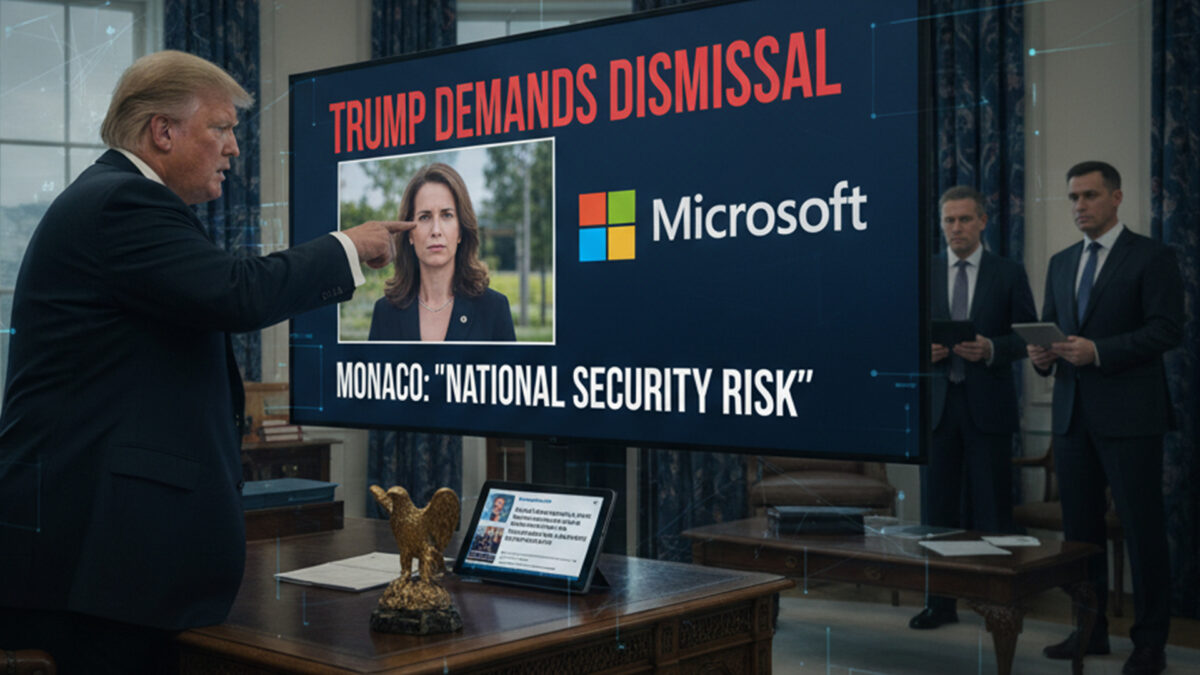U.S. President Donald Trump has publicly called on Microsoft to fire Lisa Monaco, its newly hired global affairs president and former Deputy Attorney General under President Biden, accusing her of posing a threat to U.S. national security.
In a post on his social media platform, Trump described Monaco as a “menace to U.S. National Security,” arguing that her role in Microsoft — a company with substantial federal government contracts — grants her access to sensitive information she should not hold.
He also asserted that her security clearances were revoked earlier this year and claimed she has been banned from federal properties.
Monaco joined Microsoft in July 2025 to lead the company’s engagement with governments, cybersecurity policy, and digital crime efforts.
Her government career spans high-profile roles in both Democratic administrations, including coordinating the Justice Department’s response to the January 6, 2021, Capitol attack and serving as a national security adviser.
Trump’s targeting of Monaco comes a day after the indictment of former FBI director James Comey — part of a broader pattern in which Trump has intensified pressure on individuals from prior administrations whom he views as political adversaries.
Microsoft declined to comment publicly on Trump’s demand. Monaco also has not responded to inquiries.
Observers note that the request places Microsoft in a difficult position: acquiescing may be viewed as bowing to political pressure, while resisting could expose the company to retaliation or regulatory scrutiny.
Some analysts suggest the move is intended less for practical effect than as a rhetorical escalation.
Monaco’s security clearances were revoked in February, a move that Trump has cited as justification for his demand. He claims she was also prohibited from accessing federal facilities. But the precise reasons for these revocations are not publicly confirmed.
Her appointment at Microsoft had not drawn much attention until recently, leading some analysts to speculate that Trump may have only recently become aware of her role.
In recent months, Microsoft has leaned heavily into its government services business, including cloud and AI contracts. That makes the optics of Trump’s demand more acute, given the company’s reliance on federal contracts and relationships.
The episode also underscores the tensions between tech firms and political authorities in the U.S. Trump has previously intervened in corporate matters, including pressuring leadership changes at Intel and demanding actions by media and entertainment firms.
It remains uncertain whether Microsoft will comply or push back. Monaco’s role and reputation are now at the center of a clash between political interests and corporate autonomy — a flashpoint that may have implications for how tech companies navigate government relations in an increasingly partisan climate.
Also Read: IndusInd Bank: Ex-CFO Alleges ₹2,000 Crore Accounting Fraud
